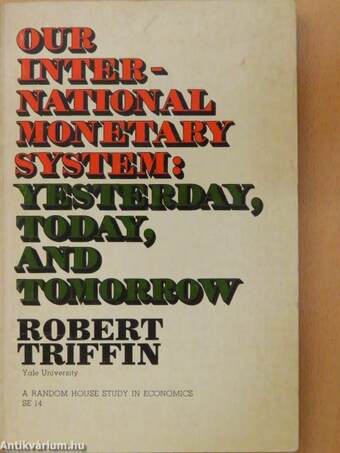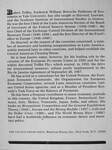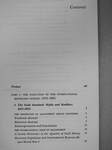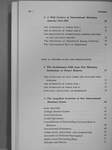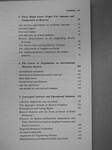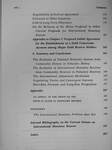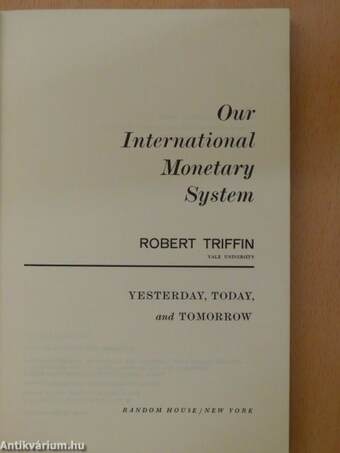1.103.855
kiadvánnyal nyújtjuk Magyarország legnagyobb antikvár könyv-kínálatát

VISSZA
A TETEJÉRE
JAVASLATOKÉszre-
vételek
Our International Monetary System
Yesterday, Today, and Tomorrow
| Kiadó: | Random House, Inc. |
|---|---|
| Kiadás helye: | New York |
| Kiadás éve: | |
| Kötés típusa: | Ragasztott papírkötés |
| Oldalszám: | 206 oldal |
| Sorozatcím: | Studies in Economics |
| Kötetszám: | |
| Nyelv: | Angol |
| Méret: | 20 cm x 13 cm |
| ISBN: | |
naponta értesítjük a beérkező friss
kiadványokról
naponta értesítjük a beérkező friss
kiadványokról
Fülszöveg
Robert Triffin, Frederick William Beinecke Professor of Economics at Yale University, has also taught at Harvard, Louvain, and the Graduate Institute of International Studies in Geneva. He was the first Chief of the Latin American Section of the Board of Governors of the Federal Reserve System (1942-1946), the first Chief of the Exchange Control Division of the International Monetary Fund (1946-1948), and the first Director of the Fund's office in Europe (1948-1949).
He directed, at the request of the countries concerned, a number of monetary and banking reorganizations in Latin America, widely imitated later in other countries, and helped establish the Central American Clearing House.
He is bes-t known today, however, for his leading role in the creation of the European Payments Union in 1950 and for the widely discussed Triffin Plan which started, in 1959, the drive for international monetary reform partly implemented in the Rio de Janeiro Agreement of September 28, 1967.
He... Tovább
Fülszöveg
Robert Triffin, Frederick William Beinecke Professor of Economics at Yale University, has also taught at Harvard, Louvain, and the Graduate Institute of International Studies in Geneva. He was the first Chief of the Latin American Section of the Board of Governors of the Federal Reserve System (1942-1946), the first Chief of the Exchange Control Division of the International Monetary Fund (1946-1948), and the first Director of the Fund's office in Europe (1948-1949).
He directed, at the request of the countries concerned, a number of monetary and banking reorganizations in Latin America, widely imitated later in other countries, and helped establish the Central American Clearing House.
He is bes-t known today, however, for his leading role in the creation of the European Payments Union in 1950 and for the widely discussed Triffin Plan which started, in 1959, the drive for international monetary reform partly implemented in the Rio de Janeiro Agreement of September 28, 1967.
He has acted as a consultant for the United Nations, the European Economic Community, the Organization for European Economic Cooperation, several Latin American countries, various United States agencies, and as a Member of President Kennedy's Task Force on the Balance of Payments.
He has been a frequent contributor to many economic journals in this country, the United Kingdom, France, Switzerland, Germany, Italy, Mexico, Venezuela, Japan, India, and others. His books on Monopolistic Competition and the General Equilibrium Theory (1940), Europe and the Money Muddle (1957), Gold and the Dollar Crisis (1960), and The World Money Maze (1966) have had a worldwide influence on economic theory and monetary policy.
the college department, Random House, Inc., New York, N.Y. 10022 Vissza
Témakörök
- Közgazdaságtan > Gazdaságpolitika
- Közgazdaságtan > Pénzügy > Egyéb
- Közgazdaságtan > Gazdaságtörténet > Tanulmányok
- Idegennyelv > Idegennyelvű könyvek > Angol > Közgazdaságtan > Gazdaságpolitika
- Idegennyelv > Idegennyelvű könyvek > Angol > Közgazdaságtan > Gazdaságtörténet > Tanulmányok
- Idegennyelv > Idegennyelvű könyvek > Angol > Közgazdaságtan > Pénzügy > Egyéb
Robert Triffin
Robert Triffin műveinek az Antikvarium.hu-n kapható vagy előjegyezhető listáját itt tekintheti meg: Robert Triffin könyvek, művekMegvásárolható példányok
Nincs megvásárolható példány
A könyv összes megrendelhető példánya elfogyott. Ha kívánja, előjegyezheti a könyvet, és amint a könyv egy újabb példánya elérhető lesz, értesítjük.



